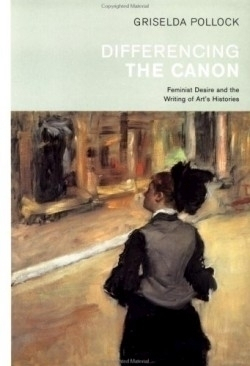Differencing the Canon
Feminist Desire and the Writing of Art's Histories
As society changes, giving rise to new perspectives in the way our culture is being shaped, it’s not just the future that needs to be examined. For example, how would a feminist scholar look at the female subject of an 18th century painting differently than the art’s subject, or even a casual observer of that time? Perception is invariably skewed by the circumstances in which one operates, but it can also be a valuable tool for reinterpreting art and culture of another age.
Pollock, Professor of Social and Critical Histories of Art and Director of the Centre for Cultural Studies at the University of Leeds, draws on her formidable background as an art historian to add a new element to the debate over feminist readings of art. Some feminist scholars favor rejecting the “Old Masters” in favor of a less male-centered approach to art education, whereas others opt for a move toward broadening art history to include forgotten and neglected women artists. Pollock refrains from making suggestions as to the direction education should take, and instead focuses on the debate itself, and what it tells one about the differences between women, and their ways of interpreting art. She draws on psychoanalysis and deconstruction to explore questions of sexuality and cultural difference, and although she asks more questions than she answers, the questions themselves are searingly insightful and important.
The flow of the book is wondrous, as Pollock builds each new idea onto the next, rounded out with rigorous research. The writing suffers slightly from an overabundance of academic jargon, especially when the description of individual artworks involves a scholarly definition of “desire” and “the other.” Despite this, Pollock reaches and even surpasses her goal, articulated in her introduction, to open new discussions about art and feminism.
Reviewed by
Elizabeth Millard
Disclosure: This article is not an endorsement, but a review. The publisher of this book provided free copies of the book to have their book reviewed by a professional reviewer. No fee was paid by the publisher for this review. Foreword Reviews only recommends books that we love. Foreword Magazine, Inc. is disclosing this in accordance with the Federal Trade Commission’s 16 CFR, Part 255.

